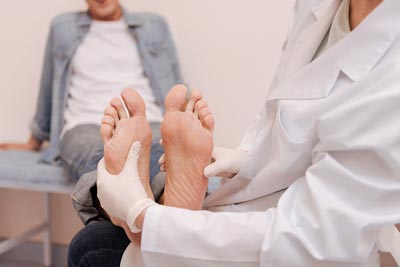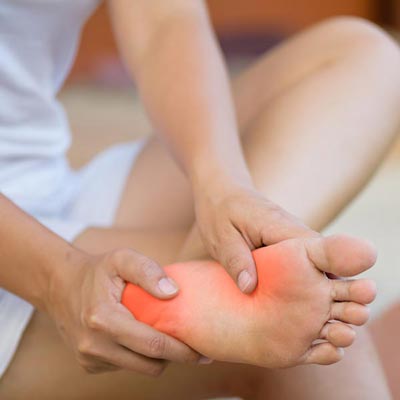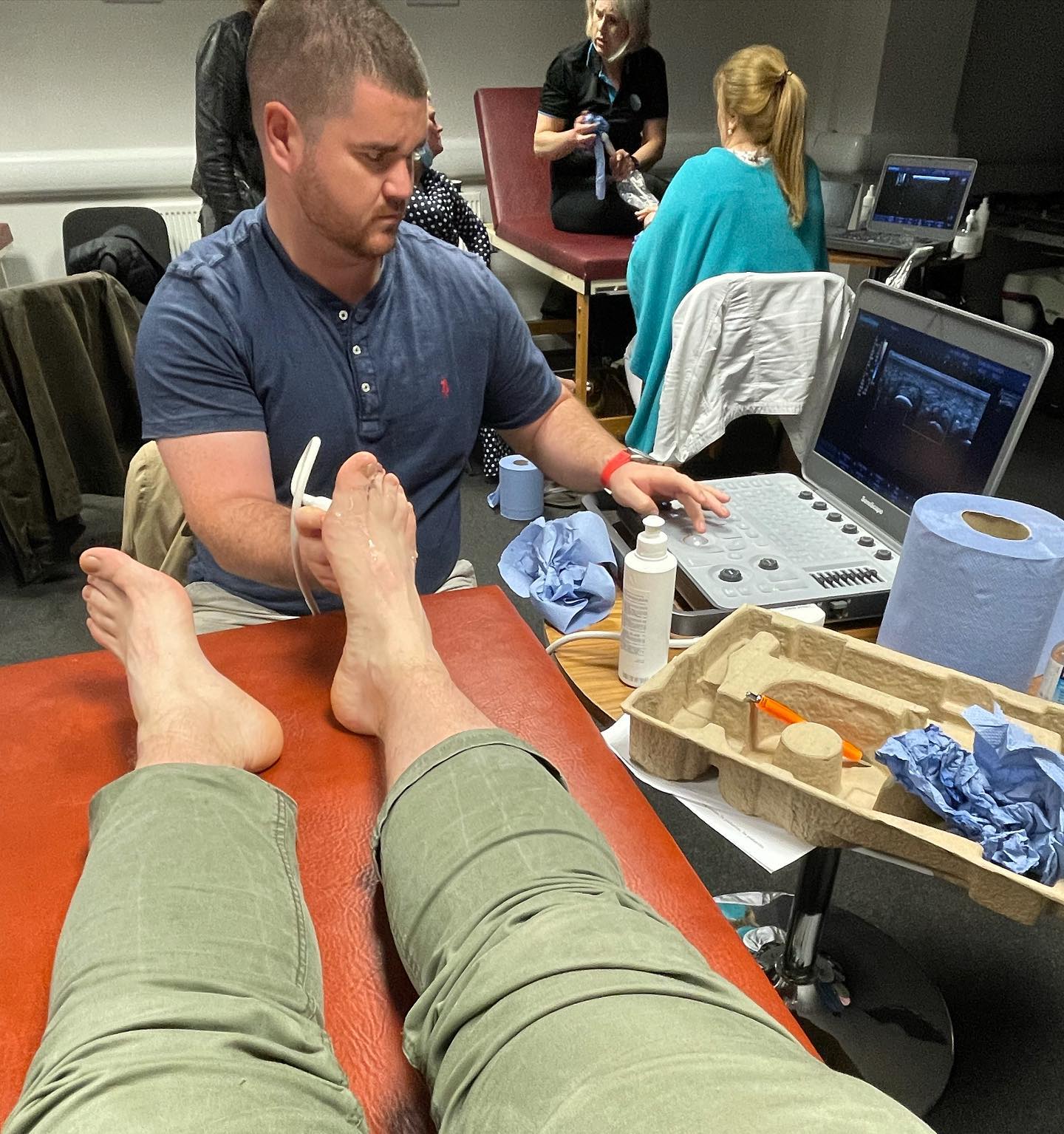Peripheral Neuropathy Doctor Near Me Williams AZ
Receiving a diagnosis of peripheral neuropathy (PN) can be daunting. It often marks the beginning of a complex and often frustrating search for treatments that can relieve pain and improve quality of life. With so many healthcare providers out there, how do you find a neuropathy specialist who is not only accessible but also upholds the highest standards of care? In this comprehensive guide, we will walk you through the essential steps to identify top peripheral neuropathy doctors in Williams AZ.
Understanding Your Condition
Understanding your condition is the first step towards managing and overcoming peripheral neuropathy. This condition, which affects the nerves outside your brain and spinal cord, can cause a range of symptoms, from numbness and tingling in your hands and feet to muscle weakness or even balance problems. As a patient, getting a grasp on what this diagnosis means can seem overwhelming, but with the right knowledge and support, you can confidently navigate your treatment journey.
The first aspect to understand about peripheral neuropathy is its causes. It can be due to several factors, including diabetes, infections, autoimmune diseases, or exposure to toxins. In some cases, it might be inherited or idiopathic, meaning the cause is unknown. Understanding the underlying reason for your neuropathy can help guide your treatment approach.
Next, familiarize yourself with the symptoms and how they might impact your daily life. Peripheral neuropathy can affect motor, sensory, or autonomic nerves, leading to a diverse range of symptoms. You might experience pain, difficulty walking, or even changes in blood pressure. By recognizing these symptoms and how they manifest in your body, you can better communicate your experiences with your doctor.
Treatment for peripheral neuropathy are varied and depend largely on the cause of your neuropathy and the severity of your symptoms. Treatment may include managing the underlying condition causing the neuropathy, such as controlling blood sugar in diabetes, or directly addressing the symptoms through medications, physical therapy, or lifestyle changes. It’s important to discuss these options in detail with your doctor to develop a treatment plan that suits your needs and lifestyle.
Finally, remember that managing peripheral neuropathy is a journey, not a destination. It may require trial and error to find the most effective treatment, and symptoms may fluctuate over time. Patience, perseverance, and open communication with your healthcare provider are crucial in this process. With understanding and proactive management, you can live a fulfilling life with peripheral neuropathy.

Peripheral Neuropathy Doctor Williams AZ
Referral From Primary Care Physician
Obtaining a referral from your primary care physician to see a peripheral neuropathy doctor is an essential step in managing your nerve-related condition. This process allows for a seamless transition from general to specialized care, ensuring you receive the most appropriate treatment for your individual health needs.
Your primary care physician is often the first point of contact when you experience health issues. They are familiar with your medical history, lifestyle factors, and overall health status. If you present symptoms that suggest peripheral neuropathy such as numbness, tingling, or muscle weakness, your primary care physician will likely conduct initial tests and assessments to understand the root of these symptoms.
If these evaluations point towards peripheral neuropathy, your primary care physician will then refer you to a specialist. Specialists in this field have more extensive training and experience in diagnosing and treating nerve-related conditions. This referral doesn’t mean your health situation is dire; instead, it’s an opportunity to access expert care tailored to your specific needs.
Once you receive your referral, your primary care physician will continue to play a crucial role in your healthcare team. They will coordinate with your peripheral neuropathy doctor to ensure all aspects of your health are considered in your treatment plan. This collaboration between healthcare professionals is key to providing comprehensive care.
Remember, referrals are a standard part of healthcare and they exist to ensure patients receive the best possible care. So while being referred to a Peripheral Neuropathy specialist can feel overwhelming, it’s an important step towards understanding your condition and finding the most effective treatment. With the support of your primary care physician and peripheral neuropathy doctor, you can confidently navigate your health journey.
Local News and Directories
Navigating through local news and directories to find a peripheral neuropathy doctor can be an empowering step in managing your condition. These resources can provide valuable insights into the latest treatments, reputable specialists in your area, and even patient experiences that can guide you in your healthcare journey.
Local news often features stories about medical advancements and profiles of local doctors, and these can be a useful source of information for patients with peripheral neuropathy. For instance, you might come across a story about a local chiropractor who has started offering new treatment methods for nerve pain and numbness caused by peripheral neuropathy. These stories not only keep you informed about the latest developments but also introduce you to potential healthcare providers in your community.
Directories, on the other hand, are designed to help you locate peripheral neuropathy doctors in your area. They typically provide details such as the doctor’s qualifications, specializations, and sometimes even reviews from past patients. Such directories can be particularly helpful if you’ve received a referral from your primary care physician and are in the process of choosing a specialist.
Aside from local resources, national and international directories can also be beneficial. These often list top-rated doctors and hospitals specializing in peripheral neuropathy, giving you an idea of the best in the field. While distance might be a factor, knowing the leading experts can be helpful, particularly for those considering a second opinion or exploring advanced treatment options.
Ultimately, local news and directories serve as tools to help you take control of your healthcare. They empower you to make informed decisions about your treatment and the specialists you choose to work with. However, while these resources are valuable, it’s crucial to discuss any information you find with your healthcare provider. This ensures you receive care that is tailored to your individual needs and circumstances.

Peripheral Neuropathy
Professional Associations and Societies
Professional associations and societies play a critical role in the field of peripheral neuropathy. They serve as important resources for both doctors specializing in this area and patients seeking to understand their condition better. These organizations foster collaboration, promote research, and provide valuable educational resources.
For peripheral neuropathy doctors, these professional bodies offer a platform for networking and collaboration. They bring together experts in the field to share insights, discuss recent advancements, and collaborate on research. These interactions can lead to improved patient care, as doctors incorporate the latest research findings and treatment approaches into their practice.
Associations and societies also play a crucial role in continuing medical education. They organize conferences, seminars, and workshops that help physicians stay up-to-date with the latest developments in peripheral neuropathy. They often offer specialty training programs and certification courses that enhance a doctor’s skill set and expertise in managing this complex condition.
For patients, these organizations serve as trusted sources of information. They often have resources designed to educate patients about peripheral neuropathy, its causes, symptoms, and treatment options. This knowledge can empower patients, helping them make informed decisions about their health and treatment.
Furthermore, these associations advocate for policies that benefit both patients and healthcare providers. They work towards improving patient access to quality care, promoting research funding, and influencing healthcare policy to address the needs of individuals with peripheral neuropathy.
In conclusion, professional associations and societies are pillars in the field of peripheral neuropathy. They foster a community of learning and collaboration among doctors, provide valuable resources for patients, and advocate for policies that improve the lives of those affected by this condition. Whether you’re a doctor seeking to expand your knowledge or a patient trying to understand your condition better, these organizations can be invaluable resources.
Telehealth Services
The advent of telehealth services has revolutionized the way we access healthcare, including treatment services for peripheral neuropathy. This innovative approach to medicine allows patients to consult with their doctors from the comfort of their own homes, making healthcare more accessible and convenient than ever before.
Telehealth services are particularly beneficial for patients with peripheral neuropathy, a condition that often involves chronic pain and mobility issues. These services eliminate the need to travel, which can be a significant challenge for many patients. Instead, patients can connect with their doctors virtually, via video calls, phone calls, or messaging systems.
In addition to consultations, telehealth platforms often include a range of other features designed to enhance patient care. For instance, they may allow patients to schedule appointments with specialist, view their medical records, or request prescription renewals online. Some platforms even offer educational resources about peripheral neuropathy, helping patients understand their condition better.
That being said, telehealth does not replace in-person visits entirely. Some aspects of peripheral neuropathy care, such as physical examinations or certain diagnostic tests, still require face-to-face interaction. Therefore, telehealth should be viewed as a complementary service, one that works alongside traditional healthcare to provide the most comprehensive care possible.
In conclusion, telehealth services offer an exciting new way to manage peripheral neuropathy. They make healthcare more accessible and convenient, allowing patients to consult with their doctors without leaving their homes. While it doesn’t replace traditional care, it certainly enhances it, offering a more flexible and patient-centered approach to health.

Peripheral Neuropathy Treatment
Local Patient Support Groups
Local patient support groups play a vital role in managing peripheral neuropathy. They provide a safe and understanding environment where individuals living with this condition can come together, share their experiences, and learn from each other.
These groups often focus on sharing success stories and strategies for coping with the challenges of peripheral neuropathy. By hearing about others’ experiences and triumphs, patients can gain a sense of hope and optimism, which can be incredibly empowering. These shared narratives can also offer practical tips and insights that can help patients manage their symptoms more effectively.
In addition to providing emotional support, these groups often serve as an educational resource. They provide information on the latest research developments, treatment options, and lifestyle modifications that can help manage peripheral neuropathy. This knowledge can empower patients, helping them make informed decisions about their healthcare and improving their quality of life.
Many of these support groups also aim to raise awareness about peripheral neuropathy in the broader community. They work towards educating the public about this condition, advocating for better healthcare services, and promoting research into new treatments. This advocacy work not only benefits current patients but also future generations of individuals who may be diagnosed with peripheral neuropathy.
In conclusion, local patient support groups are an invaluable resource for people living with peripheral neuropathy. They offer emotional support, education, and advocacy, helping patients navigate their healthcare journey with confidence and positivity. Whether you’re newly diagnosed or have been living with peripheral neuropathy for years, joining a local support group can make a significant difference in your life.
Conclusion
Peripheral neuropathy is a complex and challenging condition, but with the right support and resources, it can be managed effectively. From professional associations and telehealth services to local patient support groups, there are many avenues for patients and healthcare providers to access valuable information, education, and advocacy. By working together as a community, we can continue to improve the lives of individuals living with peripheral neuropathy and pave the way for better treatments and ultimately, a cure. So, it is important to stay connected with these resources and organizations to stay informed and empowered in managing peripheral neuropathy. Remember, you are not alone in this journey. There is a whole community of support waiting for you. Together, we can make a difference. So, let’s continue to spread awareness and support for peripheral neuropathy and work towards a brighter future for all those affected by this condition.
